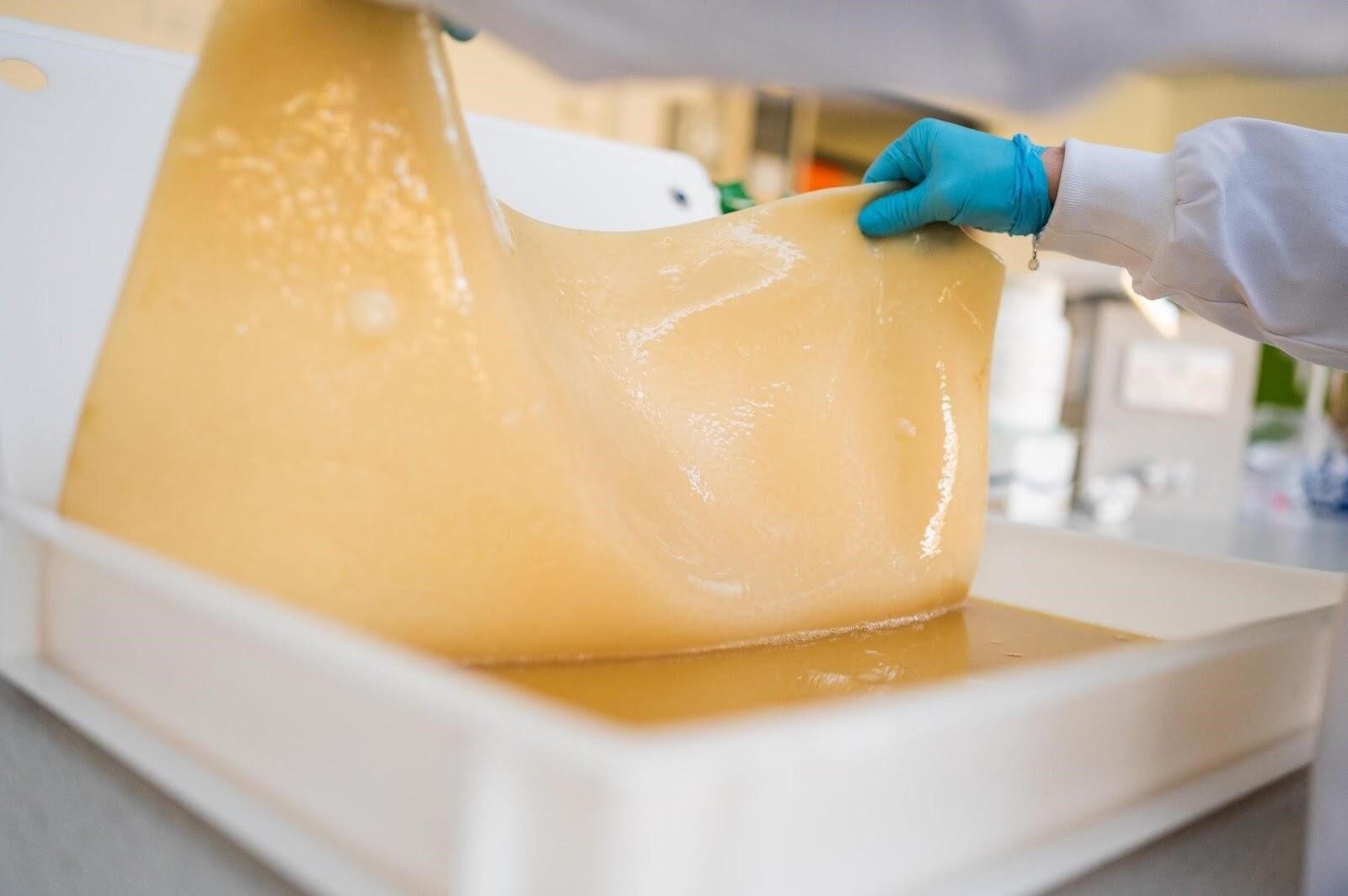 Bacterial cellulose production at the University of York
Bacterial cellulose production at the University of York
NICER Case Study: Materials Circularity (MC) bacterial cellulose production and fibre spinning
The Textiles Circularity Centre (TCC) Materials Circularity (MC) research strand produced bacterial cellulose by recycling three different bio-based waste streams for a sustainable polymer production, which was introduced into preliminary trials for a clean production of regenerated cellulose fibres. The University of York produced bacterial cellulose from three different resource flows in the Textiles Circularity Centre, namely crop residues (wheat straw), the biological fraction of Municipal Solid Waste (Bio-MSW) and textile waste (viscose and cotton), to establish the protocol for circular cellulose production. The high-quality polymers produced were spun and regenerated at Cranfield University to demonstrate the principle of fibre spinning using bacterial cellulose. Preliminary trials achieved spinning of regenerated cellulose fibres which can be introduced into textile manufacturing processes.